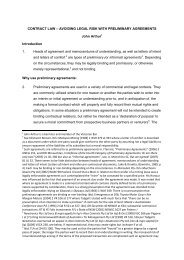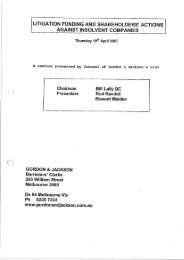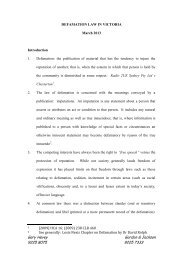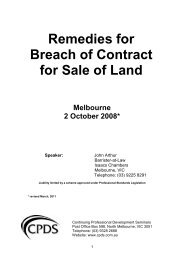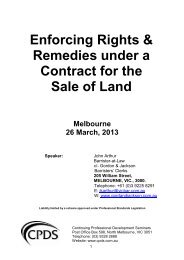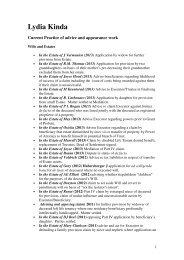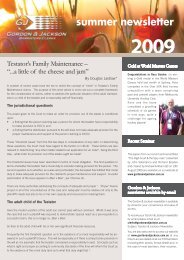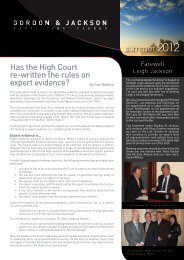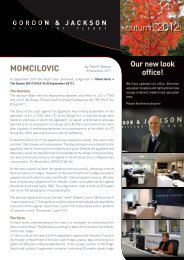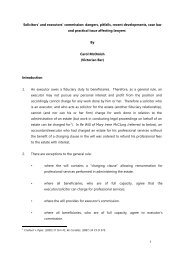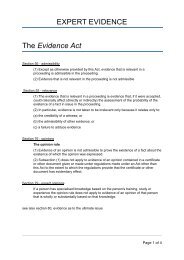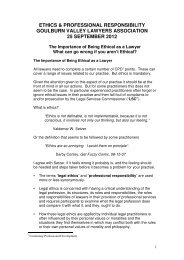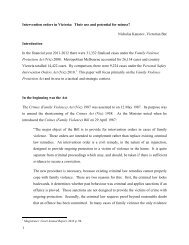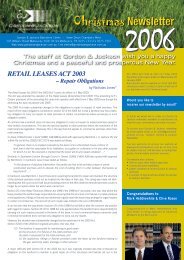here - Gordon & Jackson
here - Gordon & Jackson
here - Gordon & Jackson
Create successful ePaper yourself
Turn your PDF publications into a flip-book with our unique Google optimized e-Paper software.
Other civil procedure obligations<br />
In both the federal and state courts t<strong>here</strong> have been relatively recent amendments to civil<br />
procedure generally by the imposition of express statutory duties and obligations in the<br />
conduct of proceedings. In the Federal Court these are found in sections 37M and 37N of<br />
the Federal Court of Australia Act 1976 (Clth) . Section 37M states that the overarching<br />
purpose of the civil practice and procedure provisions is to facilitate the just resolution of<br />
disputes according to law and as quickly, inexpensively and efficiently as possible. Section<br />
37N(1) imposes duties on the parties to act in a way that is consistent with the overarching<br />
purpose, and section 37N(2) imposes duties on lawyers to take account of the duty imposed<br />
on their client and to assist their client to comply with it. The sanction for failure to comply is<br />
a costs penalty.<br />
In state courts the Civil Procedure Act 2010 (Vic) imposes on parties, their lawyers and on<br />
experts a series of overarching obligations. The specific obligations are set out in sections<br />
16-27 of the Act. These include a duty not to mislead or deceive (section 21) which, when<br />
coupled with an expert's required statement under the Order 44 practice note, introduces a<br />
regime of full disclosure by experts and a duty not to mislead by silence or omission.<br />
Ultimately, while t<strong>here</strong> is some debate as to whether the Civil Procedure Act and Federal<br />
Court Act impose a more rigorous standard on experts than existed before their introduction,<br />
they are principally important because they reinforce the practice note requirements. In<br />
VCAT Practice Note PNVCAT 3 contains similar provisions.<br />
Remember that the expert evidence guidelines have been imposed because courts are<br />
aware how vulnerable they are in making decisions in specialist areas and are concerned<br />
not to be taken for a ride. This means that if an expert is found to have been less than frank<br />
with the court or to have made a mistake in his or her report then they are less likely to be<br />
accepted by the court on other matters, even if they are a leading expert whose ultimate<br />
conclusions are well reasoned, logical and completely correct.<br />
Page 24 of 31



